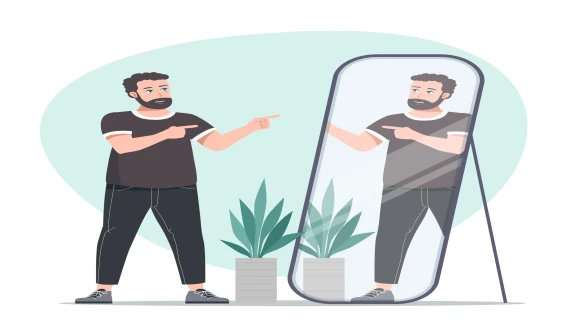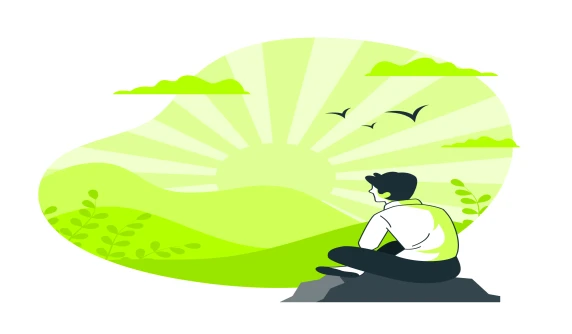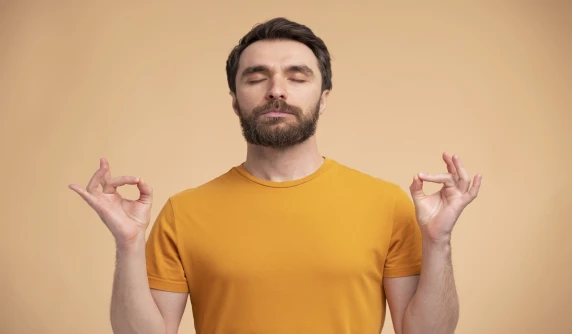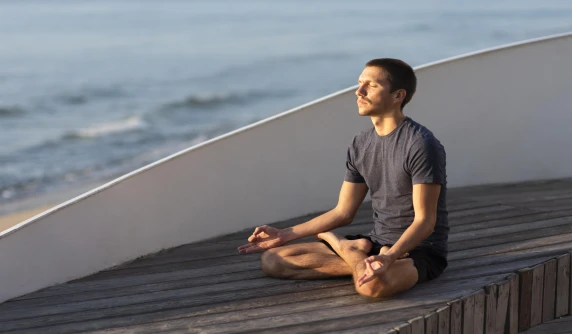
How self-aware do you feel you are?
Psychologists frequently define self-awareness as having the capacity for introspective awareness of some sort.
You start to connect with your own distinct identity as you grow in self-awareness. You become self-conscious and develop the ability to evaluate yourself objectively as you begin to center your attention on yourself and compare your current conduct to your internal standards and beliefs.
To increase your self-awareness, you can do a variety of exercises and activities, such as self-reflection exercises and basic exercises.
We shall examine a few of such self-awareness tools in this article.
What are Self-Awareness Exercises and Activities?
Self-awareness exercises and activities are valuable tools that can assist you in discovering your true self and your life's purpose, in addition to assisting you in achieving your goals.
You will learn more about what's underlying the more you actually "peel the onion." Improvement of oneself and self-awareness go hand in hand.
Gaining greater self-awareness can assist you in recognizing your needs, wants, abilities, and shortcomings.
Self-awareness is yet another crucial success strategy. Your actions and behavior are determined by those inner workings of your mind. You start to identify those negative thought patterns and bad habits as you grow in self-awareness.

Common Self-Awareness Techniques
You can practice a lot of different strategies to become more self-aware. Typical methods include the following:
-
Grounding techniques, and reconnecting to the Earth.
-
Tai Chi, Qigong, or Yoga.
-
Strength assessments from the University of Pennsylvania, such as the Values in Action Strength Test.
-
Journaling.
-
Having a Personal Vision.
-
Observing others.
23 Self-Awareness Questions to Ask
There are probably hundreds of questions you might ask yourself, but a handful stand out in terms of self-awareness.
Self-awareness questions on values and life goals
- How does the ideal "you" appear to you?
- What kind of aspirations and objectives do you have?
- Why do these aspirations or objectives matter?
- What is preventing you from achieving these aspirations?
- List the top five to ten priorities in your life, including your work, family, relationships, love, money, and so forth.
- Now consider the percentage of your time that you spend on each of these.
- What actions or inactions would you advise your kids to take?
Self-awareness questions on personality
- Summarize who you are in three words.
- Has your personality altered since you were a child?
- Which of your parents' personalities best describes you?
- Which aspects of yourself do you find most admirable?
- Which of your weaknesses is the biggest?
- What is your greatest asset?
- What frightens you?
- Do you use logic or intuition while making decisions?
- In what way would you answer the "What if?" question?
Self-awareness questions on relationships
- Describe the kind of close friendship you want.
- In what way is your present connection fulfilling to you?
- If you knew you just had a few minutes to live, who would you call? How would you respond?
- Whom have you most loved?
- Describe the most memorable relationship you have ever been in.
- Describe a terrible time in your relationships.
- Do you treat yourself better than other people?
The purpose of these questions is to get you to reflect. Providing answers to these questions is an effective way to learn about yourself.
2 Self-Awareness Activities for Adults
Grounding and mindfulness are two powerful strategies for increasing self-awareness.
1. Mindfulness Meditation
Originating from Jon Kabat-Zinn's Mindfulness-Based Stress Reduction, mindfulness is an awareness that emerges from paying attention to the current moment in a nonjudgmental way.
This is also how you learn to focus on the present moment when practicing mindfulness meditation.
Researchers from Harvard University observed that mindfulness seems to alter the brains of sad people. Research has also demonstrated some amazing advantages of mind-body techniques, such as lowering blood pressure in hypersensitive individuals following training in relaxation response.
It's not too difficult to learn how to meditate mindfully.
This is a great way to get things going:
-
Find a place to yourself that is quiet and peaceful. You can take a seat on the floor or in a chair. Make sure your neck and back remain straight.
-
Try to maintain your attention on the here and now as you start. Avoid focusing on the past or the future.
-
Gain consciousness of your breathing and concentrate on the sensation of air entering and leaving your body as you inhale and exhale. As the air passes through your lips and into your nostrils, feel your stomach rise and fall. Observe how each breath differs slightly from the last.
-
Take note of every idea that arises and disappears. You are even able to label your ideas. If you find yourself worrying, accept it and move on. Instead of ignoring your ideas, write them down and use your breath as a reference point.
-
Return your attention to your breathing and try not to be too hard on yourself if you find it difficult to stay in the now.
-
Start small, aiming for a minute or so, and gradually increase the duration.
2. Grounding Techniques
Psychotherapist Dr. Sara Allen says that grounding is a great method to immediately get peaceful and also a great approach to start becoming more self-aware.
Similar to mindfulness, grounding is the act of directing your attention to the present moment and establishing a connection with the Earth.
The Grounding Chair is one easy grounding method. Allen (2019)
- Look for a chair that is comfortable, sit down, and close your eyes. Ensure your feet are able to contact the ground.
- Take three deep breaths in and out.
- Next, turn your attention to your physique. Take note of how your limbs, especially your legs and feet, feel. Take note of how the chair or surface feels against your back. Take note of the fabric's texture and the seat's feel.
- Then, visualize your feet pressing into the earth. Imagine the energy leaving your thoughts and entering the Earth through your feet.
- Observe how heavy every part of your body feels as you relax those muscles and feel the energy leave your head.
- Sensation of heaviness travels through your feet, down your legs, and into the earth.
You can use your shoes off and perform the same approach outside. This kind of connection to the Earth has a certain allure.
2 Self-Awareness Training Activities for Youth and Students
Students and young people can engage in a variety of entertaining self-awareness activities.
The Sparks: Peer-to-Peer Interview worksheet is one of them. This activity is based on discovering a child's sparks, or their passions, interests, and talents.
Six easy questions on the worksheet can be used to further explore these concepts.
- Which of your interests, talents, or passions are your sparks?
- How did you figure out that one of your sparks is this?
- When you do your spark, how does it make you feel?
- Consider someone who truly embodies their passion or spark. Explain what you observe.
- Does someone support you in exploring and honing your self-awareness skills—an adult who serves as your spark champion? If so, explain how this individual supports you.
- Do you establish strategies and goals to improve your spark or talent? If so, please provide an example.
You may find this worksheet on the actforyouth.net website as well. Asking straightforward questions like these can assist someone in recognizing and enhancing their abilities.
For learning and concentration problems, the kids' self-awareness worksheet on the understood.org website is another excellent resource.
The seven questions on the self-awareness worksheet might assist a young person in advocating for themselves. To assist the child in developing an understanding of their strengths and shortcomings, you can also work on this worksheet with them.
3 Self-Awareness Exercises and Activities for Kids and Toddlers
Developing self-awareness is beneficial for toddlers and young children as well.
A child of this age may conjure up an image in their mind, even if they might not be fully self-aware.
Their self-identity grows together with their self-awareness. At this age, self-awareness is mainly about identifying the differences and learning about one's own body and emotions.
Participating in activities that facilitate this can greatly aid in their learning and development.
1. Same Versus Different Activity
Even at this young age, children are able to distinguish between similarities and differences, such as variances in skin tone and other distinguishing physical traits.
Kids can have a lot of fun doing this by trying on knee-high nylons or socks that symbolize different hues of skin. You can highlight the beauty and individuality of each person's distinct skin tone as they work.
Barbara Biles, a childhood specialist, claims that a youngster can learn to respect both their own and other people's skin tones through this kind of easy play.
2. Physical Awareness Activity
As we age, our awareness of our bodies also grows. Engaging in growth activities is a fantastic method to support this. A young child can better comprehend and appreciate their developing body through growth activities.
These kinds of growth activities—which are engaging, upbeat, and encouraging—can be quite beneficial. Fun activities include things like having a youngster point out different body parts by gazing in the mirror or hanging a height and growth chart on the wall. Youngsters can also sketch the contours of their hands and feet or their entire body.
For a young child, this type of practice can support the development of self-acceptance and bodily awareness.
3. Self-Responsibility Activity
Teaching accountability is a self-awareness exercise as well. Toys are often left lying about the house by young children who have no sense of responsibility.
Teaching a young child to be responsible for his toys or belongings in an enjoyable and engaging way can greatly assist in imparting the necessary skills.
This kind of activity can also assist a young child in developing self-worth and a sense of group identification, claims child educator Jean Warren.
The website healthfully.com offers all of these activities as well as others.
4 Employee Activities for the Workplace
According to psychologist Daniel Goleman, who specializes in emotional intelligence and self-awareness, those who possess a strong sense of self-awareness tend to be more realistic in their self-evaluation and possess greater self-confidence.
Practicing how you feel during the day, reflecting on how your unpleasant emotions affect other people, brainstorming strategies to better control your emotions, and honestly assessing your strengths and shortcomings are some exercises that can help you become more self-aware.
Goleman contends that it's critical to understand that feelings are ephemeral and shouldn't guide communication or decision-making.
You start to see the detrimental effects of unpleasant emotions like anger, jealously, or irritation when you think about how they affect other people, such as your employer or your coworkers. Developing self-awareness might assist you in realizing the consequences and fallout from such actions.
Enhancing your ability to control your emotions can also have a significant impact. By doing this, you can prevent rash decisions or unintentional remarks.
To do all of this, you must examine your strengths and limitations with candor. You can accomplish this by consulting previous performance reports or by requesting input from a reliable source, such as your supervisor or peers. You can actively work on strengthening those areas of weakness when you do this.
2 Self-Awareness Worksheets
Originally designed as a parlor game, the Proust-Questionnaire is a delightful game.
The 35 questions on the questionnaire encourage self-discovery and can be viewed as an enjoyable method of raising one's level of self-awareness.
Some examples of questions are:
- Which quality about yourself do you dislike the most?
- What is the lowest point of suffering, in your opinion?
- Who are your real-life heroes?
- Which regret do you have the most?
By asking these kinds of questions, you may increase your self-awareness and fortify your defenses against negative ideas, emotions, and actions.
An additional helpful tool for determining life goals based on personal values is the Setting Valued Goals worksheet.
Such a tool might also serve as a source of motivation for someone who might be having difficulties in life. Setting objectives and beginning to understand what it will take to reach them might help someone become more self-aware.
The following questions are intended to get the reader thinking about their own values:
- What do you think matters most in life?
- What gives you a sense of energy?
- What brings you the greatest joy, contentment, and fulfillment?
Can We Measure and Test Self-Awareness?
There are various ways to conceptualize dispositional self-awareness, such as insight, contemplation, rumination, and mindfulness. Sutton (2016)
The research indicates that, with different results, self-awareness is generally linked to positive psychological wellness.
The degree to which an individual is consciously aware of both their internal condition and their relationships or interactions with others is sometimes referred to as self-awareness. (Sutton, 2016).
Situational and dispositional self-awareness are two further subcategories of this concept.
Situational self-awareness is an innate mechanism that assists you in understanding your current location and available options. It helps you determine whether any changes are necessary by allowing you to compare your present behaviors to your internal standards. (Duval & Silva, 2001).
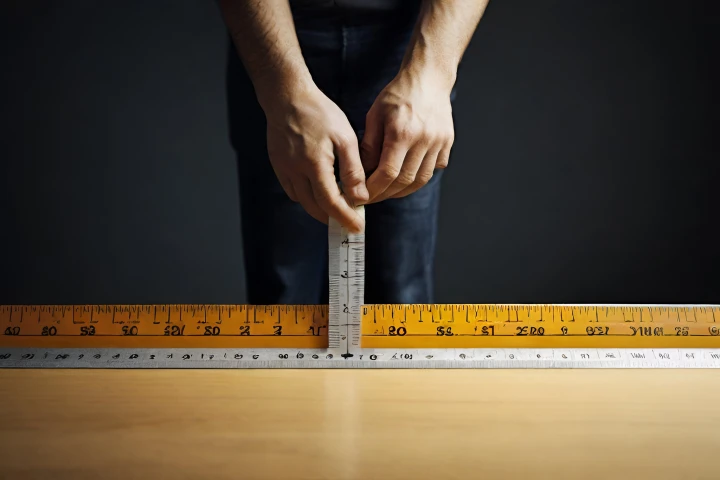
On the other side, dispositional self-awareness refers to the propensity to concentrate on and think about one's own psychological processes in addition to their subjective experiences and interpersonal relationships. (Feinstein and others, 1975)
Fenigstein further deconstructs this idea by distinguishing between self-consciousness in the public and private spheres. While private self-consciousness focuses more on becoming aware of our inner states, public self-consciousness is more concerned with how we seem to other people.
The Self-Reflection and Insight Scale, or SRIS, is one instrument used to gauge an individual's level of private self-consciousness (Grant, Franklin, & Langford, 2002).
This scale, which evaluates an individual's internal state of awareness or insight apart from self-reflection, was created as a means of measuring private self-consciousness.
Self-reflection is the process by which an individual assesses and considers their internal state; insight, on the other hand, is more about comprehending clearly.
We can keep raising our awareness in these areas by cultivating self-awareness metrics.
2 Useful Tests
The DISC personality test is intended to help you succeed more both personally and professionally in addition to helping you become more self-aware.
Your DISC personality type is determined by the test:
- Dominance
- Influence
- Steadiness
- Compliance
This can make it easier for you to forecast how you'll act in social situations and in your daily activities.
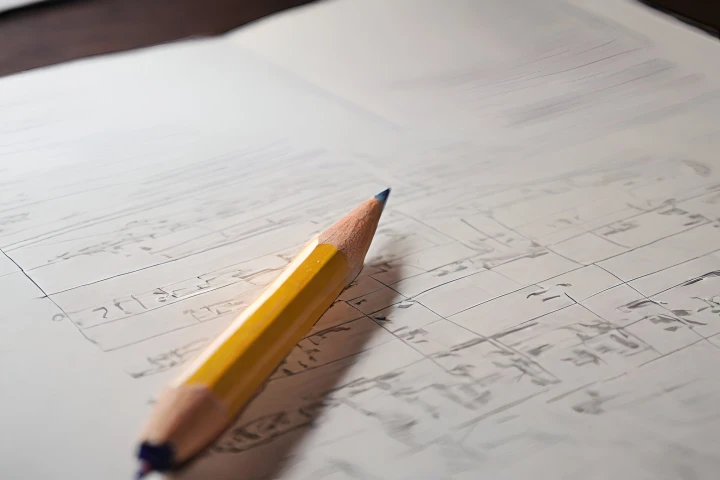
There are 28 groups of four statements in the test. Responses to the questions must be sincere and natural. It just takes five to ten minutes to finish the test.
Among the queries are the following:
- I'm admired by others.
- I'm usually a nice person.
- I embrace life as it unfolds.
- I am told I have a strong personality by others.
The goal is to look at each of the four descriptions and choose the one that best sums you up.
You can also look over the final three options and select the one that most closely fits your description.
The test's complete version is available on the 123test.com website.
You can learn more about your thought process, decision-making process, and interpersonal interactions by taking the Jung Personality Test.
You can discover if you are an extrovert or an introvert by taking the test. The exam is comparable to the Myers-Briggs type model, which was created by Isabel Briggs Myers and her mother Katherine Cook Briggs.
The following queries can be addressed with the use of the Jung personality test:
-
Which personality type are you?
-
Which Jung types are you?
-
How well suited is your type for particular jobs?
The Swiss psychiatrist and founder of Jungian psychology, Carl Gustav Jung, created the Jung test, which divides the personality into four archetypes:
- The Persona
- The Anima/Animus
- The Shadow
- The Self
There are 60 choices on the Jung personality test. Individuals select the statement that most accurately characterizes them.
A Take-Home Message
To succeed in both your personal and professional life, you must be self-aware. Being self-aware allows you to better control the direction your life takes by deciding where to direct your emotions, energy, and personality.
Being self-aware makes it easier for you to recognize how your ideas, feelings, and actions impact your life.
Learning to view yourself objectively and making an effort to see yourself as others see or perceive you are the best ways to continuously increase self-awareness. You can better and make more improvements in your life the more self-aware you are.
References
-
23 Profound Questions To Increase Your Self-Awareness. (February 17, 2019). taken from https://www.ourmindfullife.com/23-self-awareness-questions/
-
2019 February 13; Allen, S. Seven Simple Grounding Techniques to Improve Your Feelings Quickly. taken from https://drsarahallen.com/7-ways-to-calm/
-
Bhasin, M. K., Chad-Friedman, E., Niles, H., Denninger, J. W., Huffman, J. C., Joseph, M. G.,... T. A. Libermann (2018) May. Particular Transcriptome Alterations Linked to Lower Blood Pressure in Hypertensive Patients Following Relaxation Response Training. taken from https://www.ncbi.nlm.nih.gov/pubmed/29616846
-
Davenport, B. "Emotional Intelligence in the Workplace" (March 12, 2019). taken from https://liveboldandbloom.com/02/self-awareness-2/emotional-intelligence-workplace
-
Fenigstein A., Buss A. H., and Scheier M. F. (1975). Theory and assessment of self-consciousness in public and private. 43(4), 522–527, Journal of Counseling and Clinical Psychology.
-
A. M. Grant, J. Franklin, and P. Langford (2002). One new tool for measuring private self-consciousness is the Self-Reflection and Insight Scale. 30 (8), 821–835, Social Behavior and Personality.
-
On April 20, 2019, Jeffrey, S. Exercises and Activities for Self-Awareness to Develop Emotional Intelligence: 15. taken from https://scottjeffrey.com/self-awareness-activities-exercises/
-
January 10, 2019: Johnston, J. Self-Awareness Activities for Young Children in Preschool. taken from https://healthfully.com/512350-activities-for-preschool-age-children-about-self-awareness.html
-
Nguyen (January 11, 2016). Twelve Self-Awareness Activities to Boost Achievement. taken from https://www.entrepreneur.com/article/254669
-
Powell, A. August 27, 2018. Researchers at Harvard University examine how mindfulness could alter depressed individuals' brains. taken from https://news.harvard.edu/gazette/story/2018/04/harvard-researchers-study-how-mindfulness-may-change-the-brain-in-depressed-patients/
-
Ron Tamir Nehr. July 17, 2019. Self-Awareness: 10 Outstanding Methods. taken from https://rontamirnehr.com/self-awareness-techniques/
-
Sutton, A. Nov. 18, 2016. Building the Self-Awareness Outcomes Questionnaire: Assessing the Impact of Self-Awareness. taken from https://www.ncbi.nlm.nih.gov/pmc/articles/PMC5114878/
-
Wong, C. (September 3, 2019). How Do I Practice Mindfulness Meditation? taken from https://www.verywellmind.com/mindfulness-meditation-88369
Frequently asked questions
What is self-awareness?
Being able to recognize both who you are and where you are is known as self-awareness. It includes your thoughts, feelings, emotions, motivations, and how you impact others.
How can I improve my self-awareness?
There are many ways to improve your self-awareness, including:
-
Self-reflection: Ask yourself questions about your values, goals, strengths, and weaknesses.
-
Mindfulness exercises: Practices like meditation can help you focus on the present moment and become more aware of your thoughts and feelings.
-
Journaling: Writing down your thoughts and experiences can help you identify patterns and better understand yourself.
-
Getting feedback from others: Ask trusted friends or colleagues for their honest feedback on how you come across.
What are the benefits of self-awareness?
Self-awareness has many benefits, including:
-
Improved decision-making
-
Stronger relationships
-
Better emotional regulation
-
Increased self-confidence
-
Greater sense of purpose
How can I measure self-awareness?
There are several tests and questionnaires available to help you measure your self-awareness. However, these are not always perfect, and the best way to improve self-awareness is through ongoing reflection and practice.
Are there activities to help children develop self-awareness?
Yes, there are many activities that can help children develop self-awareness. These activities can help them learn about their bodies, emotions, and how they interact with the world around them.
What are some resources for learning more about self-awareness?
There are lots of resources you may use to learn more about self-awareness, both online and in libraries. The document also mentions a few specific resources, including the Sparks: Peer-to-Peer Interview worksheet and the Setting Valued Goals worksheet.
